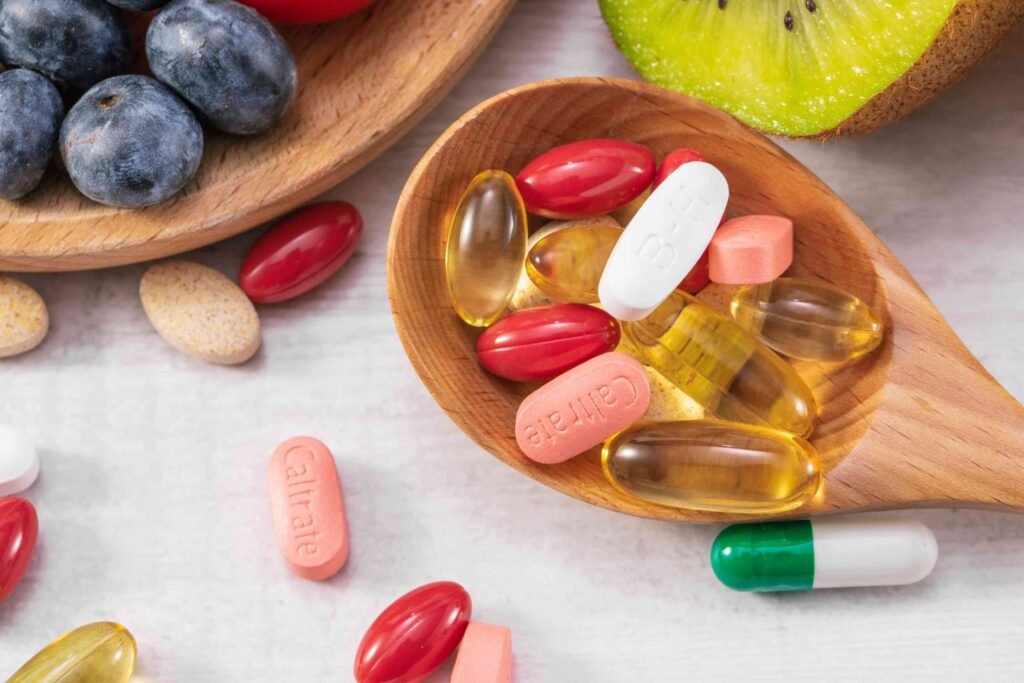Can Supplements Help Improve Fertility?
Trying to conceive can be an emotional roller coaster for many couples. For some, it happens quickly. For others, it takes time—and a lot of patience. If you’ve found yourself Googling ways to boost your chances, you’re not alone. And among the many suggestions out there, one topic that always pops up is supplements. But the real question is: Can supplements help improve fertility?
In this blog, we’ll take a deep dive into what the science says, which supplements are worth your attention, and how they might play a role in supporting reproductive health—for both men and women. We’ll also look at common misconceptions and share tips to navigate this journey more confidently. So, let’s talk fertility—and whether those bottles lining the health aisle actually live up to the hype.
Understanding Fertility
Before we dive into the supplements themselves, it helps to understand what fertility actually involves. Fertility isn’t just about having a working reproductive system. It’s about a finely tuned balance of hormones, overall health, lifestyle habits, and timing. For women, factors like egg quality, ovulation cycles, uterine health, and hormonal regulation all play a part. For men, sperm count, motility, and morphology matter just as much.
It’s no wonder fertility can feel so fragile. And because it’s influenced by so many things, people often look for that one extra boost—something that can tip the scales in their favor. This is where supplements enter the conversation.

Can Supplements Help Improve Fertility?
Let’s address the elephant in the room head-on. Can supplements help improve fertility? The short answer is: potentially, yes. But they aren’t magic pills. Supplements can support your reproductive system by filling nutritional gaps, balancing hormones, and improving overall health—but they work best when paired with other healthy lifestyle habits.
The long answer? It depends on the individual. Some couples have specific nutrient deficiencies that might be affecting their fertility. For others, supplements might offer antioxidant support, help regulate cycles, or promote healthier sperm. There’s a lot of nuance here, which is why it’s crucial to know what each supplement does—and what it doesn’t.

Common Fertility Supplements and How They Work
If you walk into any health store or search online, you’ll find an overwhelming number of fertility-related supplements. Not all of them are backed by science, and not all of them are necessary for every person. Here’s a breakdown of some of the most popular ones and what the research says:
1. Folic Acid
This one’s probably the most well-known. Folic acid is essential for women trying to conceive, especially in the early weeks of pregnancy. It helps prevent neural tube defects and supports fetal development. Some studies suggest it may also improve ovulation and egg quality.
2. Coenzyme Q10 (CoQ10)
CoQ10 is a powerful antioxidant that helps support energy production in cells. It’s been linked to improved egg quality in women and better sperm motility in men. Older women, in particular, may benefit from CoQ10 due to its role in mitochondrial function, which declines with age.
3. Vitamin D
Deficiency in vitamin D is surprisingly common and has been associated with decreased fertility in both men and women. It plays a role in hormone regulation and may improve ovulation. If you’re low on D, supplementing could be a game-changer.
https://drive.google.com/file/d/15CqX1ft6av92MT8FFNeCAJQp9DItzF31/view?usp=drive_link
4. Zinc
For men, zinc is crucial for sperm production and quality. Low levels have been linked to decreased testosterone and reduced fertility. Zinc may also benefit women by supporting hormonal balance.
5. Omega-3 Fatty Acids
Found in fish oil, omega-3s are known to reduce inflammation and support hormone function. They can help regulate menstrual cycles, support healthy cervical mucus, and improve sperm quality.
6. Myoinositol
A popular supplement among women with PCOS (polycystic ovary syndrome), myoinositol helps improve insulin sensitivity and supports ovulation. Many women with PCOS have seen improved cycle regularity and better outcomes with its use.
7. Iron
Low iron levels can interfere with ovulation and even lead to anovulation (when your body doesn’t release an egg at all). For women with heavy periods or who follow a plant-based diet, an iron supplement might help.

8. Selenium
This lesser-known trace mineral supports thyroid function and may reduce the risk of miscarriage. It also acts as an antioxidant, helping protect reproductive tissues from damage.
Can Supplements Help Improve Fertility in Men Too?
Absolutely. When talking about fertility, the conversation too often focuses only on women. But male fertility plays an equal role—and supplements can help here, too.
Sperm health can be affected by oxidative stress, poor diet, and environmental toxins. Antioxidants like vitamin C, vitamin E, and CoQ10 have been shown to improve sperm motility and morphology. Zinc, selenium, and L-carnitine are also frequently studied for their roles in boosting male fertility.
So yes, supplements can help improve fertility in men just as much as they can in women—sometimes even more so, since sperm regenerates every 70–90 days. That means lifestyle changes and supplementation can make a measurable difference in a relatively short time.
What About Herbal Supplements?
There’s a lot of interest in herbal remedies for fertility. Some people swear by maca root, chasteberry (Vitex), ashwagandha, and red raspberry leaf. These herbs have been used in traditional medicine systems for centuries, and while some show promise, the research is still catching up.
For example:
- Chasteberry is believed to help balance hormones and regulate cycles.
- Maca root may help increase libido and improve sperm quality.
- Ashwagandha can reduce stress—a known fertility disruptor—and support testosterone levels in men.

Are There Risks to Taking Fertility Supplements?
Good question. Just because something is “natural” doesn’t mean it’s risk-free. Over-supplementation or taking the wrong combination of nutrients can throw your hormones off balance or even reduce fertility. For example, too much vitamin A can be harmful during pregnancy, and high doses of selenium can be toxic.
Additionally, not all supplements are created equal. Some brands cut corners on quality or include unnecessary fillers. Always look for third-party testing, read ingredient labels carefully, and avoid anything that doesn’t clearly list dosages.
Realistic Expectations: What Supplements Can and Can’t Do
This part is really important. While the idea that supplements can help improve fertility is exciting—and sometimes true—they’re not miracle workers. They can support your fertility journey but probably won’t be the single solution. They work best when paired with healthy habits like:
- Maintaining a balanced diet
- Managing stress
- Exercising moderately
- Avoiding alcohol and smoking
- Timing intercourse around ovulation
- Getting quality sleep

When Should You Start Taking Fertility Supplements?
Most experts recommend starting at least three months before you plan to try to conceive. That’s because both eggs and sperm go through a development cycle that takes about 90 days. What you eat, how you sleep, and yes, the supplements you take during this time can impact the health of your reproductive cells.
Even if you’re not planning to conceive right away but know that it’s in the cards, taking a prenatal vitamin and improving your nutritional foundation is a smart move.
Can Supplements Help Improve Fertility if You’re Undergoing Fertility Treatments?
For couples undergoing IUI, IVF, or other assisted reproductive technologies (ART), supplements may still play a role. Some studies have shown improved egg retrieval outcomes or better sperm parameters in couples who used specific supplements prior to and during treatment.
However, you must always coordinate this with your fertility clinic. Some clinics have their own supplement protocols or may ask you to avoid certain herbs and nutrients during treatment cycles.
Final Thoughts:
Let’s circle back to our original question: Can supplements help improve fertility? The answer is a cautious yes—with an asterisk. Supplements can support fertility in meaningful ways when used properly and for the right reasons. They can improve nutrient levels, regulate hormones, and enhance sperm and egg quality—but they’re just one part of a larger picture.
If you’re on this journey, it’s completely natural to want to try everything that might help. Just remember, slow and steady usually wins this race. Be kind to your body, do your research, and partner with trusted professionals.


